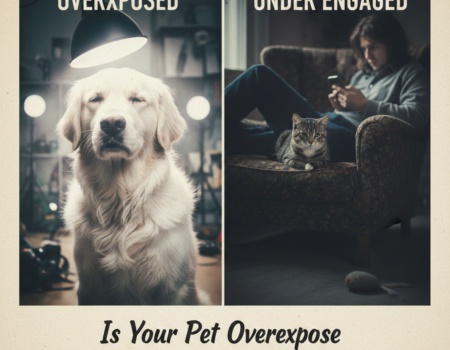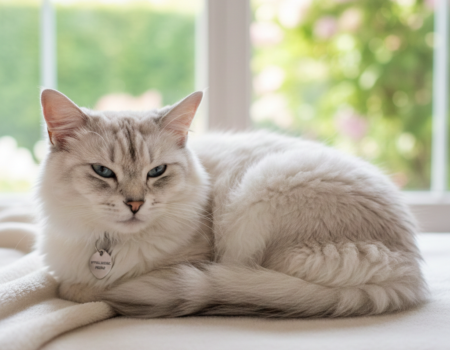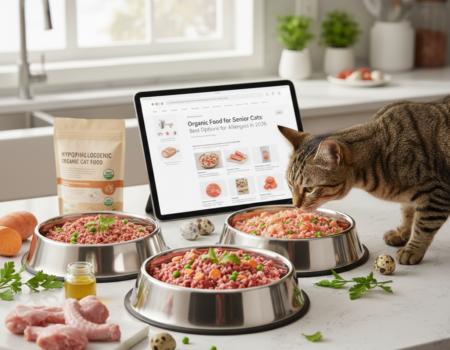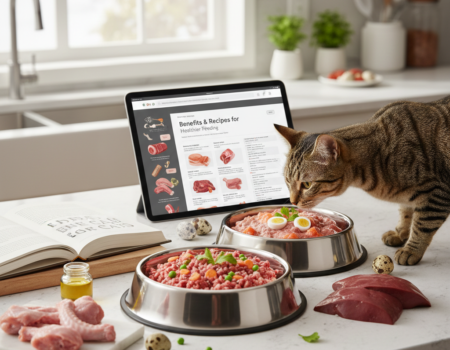Maine Coon Lifespan: Insight on Their Longevity
Did you know that the average lifespan of a Maine Coon cat ranges from 10 to 15 years? That’s right! These majestic felines have the potential to bring joy and companionship to their owners for over a decade. But what factors influence their lifespan, and how can we ensure that they live a long and healthy life? Let’s explore the secrets to increasing the longevity of Maine Coon cats.
Key Takeaways:
- Maine Coon cats have an average lifespan of 10 to 15 years.
- Factors such as health, genetics, diet, and exercise levels can affect their lifespan.
- A balanced diet that is high in protein and low in carbohydrates is crucial for their well-being.
- Regular exercise and playtime are essential for maintaining their physical and mental health.
- Choosing a responsible breeder that performs genetic testing can help prevent inherited health conditions.
The Maine Coon Cat Breed and Its Health
Maine Coon cats are a popular breed known for their large size, friendly demeanor, and distinctive physical features. Originating from the State of Maine, United States, these cats are considered relatively hardy and healthy. However, like other purebred cat breeds, Maine Coons can be susceptible to certain genetic health problems that can impact their lifespan.
One of the most common genetic health issues found in Maine Coon cats is polycystic kidney disease (PKD). This condition causes the formation of cysts in the kidneys, leading to kidney malfunction and potentially reducing the cat’s lifespan. Regular screenings and genetic testing can help identify the presence of PKD in breeding lines, enabling responsible breeders to minimize the risk of passing on the disease.
Another health concern in Maine Coon cats is heart disease, specifically hypertrophic cardiomyopathy (HCM). HCM is a genetic condition that causes the thickening of the heart muscle, leading to impaired cardiac function. Regular veterinary check-ups and screenings can help monitor heart health and detect any signs of HCM early on, allowing for appropriate management and treatment.
Furthermore, Maine Coons are prone to periodontal disease, a condition that affects the gums and teeth. Neglecting dental hygiene can result in tartar buildup, gum inflammation, and tooth loss, which can not only affect the cat’s overall health but also impact their quality of life. Regular brushing and dental check-ups, combined with feeding a diet that promotes dental health, can help prevent periodontal disease in Maine Coon cats.
To summarize, while Maine Coon cats are generally healthy, it’s important to be aware of the potential genetic health problems they may face. Responsible breeders conduct necessary genetic testing and take steps to minimize the risk of passing on these conditions. Owners should also prioritize regular veterinary care, including screenings for kidney disease and heart health, as well as maintain good dental hygiene to ensure the well-being and longevity of their beloved Maine Coon companions.
What Influences the Maine Coon Lifespan?
The lifespan of Maine Coon cats is influenced by various factors. These include their overall health, genetics, diet, and exercise levels. By ensuring that Maine Coons receive proper care, a balanced diet, and regular exercise, owners can positively impact their cats’ lifespan and overall well-being.
Taking care of your Maine Coon’s health and well-being is essential for ensuring a long and happy life. By addressing the key factors that influence their lifespan, you can help them thrive.
Factors Influencing Maine Coon Lifespan
Let’s explore the important factors that play a role in determining the lifespan of Maine Coon cats:
- Health: Good overall health is crucial for a long lifespan. Regular veterinary check-ups, vaccinations, and preventive care can help identify and address any health concerns early on.
- Genetics: Genetics play a significant role in determining a cat’s lifespan. Selecting Maine Coons from reputable breeders who prioritize genetic testing can help minimize the risk of inheriting genetic diseases.
- Diet: A well-balanced diet is essential for proper nutrition and optimal health. Maine Coons require a high-quality cat food that is rich in protein, low in carbohydrates, and free from excess fats.
- Exercise Levels: Regular exercise is crucial for maintaining a healthy weight, promoting muscle strength, and preventing obesity-related health issues. Interactive playtime and providing stimulating environments can help keep your Maine Coon physically active.
By addressing these factors, you can provide the best possible care for your Maine Coon and increase their chances of living a long and healthy life.
Remember that every cat is unique, so it’s essential to cater to their individual needs and adapt their care accordingly. Consulting with your veterinarian for personalized guidance and advice is always recommended.
The Role of Diet in Increasing Maine Coon Lifespan
Feeding Maine Coon cats a high-quality diet is crucial for increasing their lifespan. As a cat owner, I understand the importance of providing my Maine Coon with a nutritionally balanced diet that meets their unique dietary needs.
One key aspect of the Maine Coon diet is ensuring high protein levels. These cats are carnivores, and protein is essential for their overall health and well-being. A diet rich in protein not only helps to maintain muscle mass but also supports their immune system and promotes healthy organ function.
When choosing cat food for Maine Coons, it’s important to opt for options that are low in carbohydrates. These cats have a low carbohydrate requirement, and a diet high in carbs can lead to weight gain and potential health issues. By providing a low-carb diet, we can help our Maine Coons maintain a healthy weight and reduce the risk of obesity-related health problems.
In addition to protein and low carbs, it’s crucial to select cat food that is fat-free. Excess fat in the diet can contribute to weight gain and increase the risk of obesity-related health issues. A fat-free diet helps to keep Maine Coons lean and ensures their overall well-being.
One often overlooked aspect of diet that plays a significant role in the longevity of Maine Coons is dental health. Tartar buildup can lead to oral health issues and impact the cat’s overall health. Choosing cat food that promotes good dental health can prevent tartar buildup and maintain a healthy mouth. This can be achieved through formulations that help to reduce plaque and tartar, supporting the cat’s oral health throughout their lifespan.
Overall, providing a high-quality, nutritionally balanced diet is vital for increasing the lifespan of Maine Coon cats. By focusing on their unique dietary requirements – high protein levels, low carbohydrates, and fat-free options – we can ensure that our beloved Maine Coons live long, healthy lives.
Maintaining a Healthy Weight in Maine Coon Cats
Maintaining a healthy weight is essential for increasing the lifespan of Maine Coon cats. Overfeeding can lead to obesity, which can be fatal for this cat breed. As an owner, I understand the importance of ensuring that my Maine Coon receives proper portions of food and engages in regular physical activity to stay fit and healthy.
One of the key factors in preventing overfeeding is portion control. It’s essential to measure your cat’s food accurately and avoid free-feeding. This helps prevent excessive calorie intake and promotes a healthy weight. If you’re unsure about the appropriate portion size for your Maine Coon, consult your veterinarian for guidance.
Regular physical activity is equally important in helping Maine Coon cats maintain a healthy weight. By engaging in playtime or providing opportunities for exercise, you can ensure that your Maine Coon remains active and burns off excess calories.
In addition to portion control and physical activity, it’s crucial to monitor your cat’s weight regularly. If you notice your Maine Coon gaining weight, consult your veterinarian. They can assess your cat’s overall health and recommend a low-calorie diet plan if necessary.
The Dangers of Obesity in Maine Coon Cats
“Obesity is a serious health concern for Maine Coon cats. It places additional stress on their joints and organs, leading to various health issues and a shorter lifespan.” – Dr. Katherine Johnson, Veterinarian
Obese Maine Coon cats are at a higher risk of developing health problems such as diabetes, heart disease, and joint issues. These conditions can significantly impact their quality of life and reduce their lifespan.
A low-calorie diet can help overweight Maine Coons shed excess pounds and improve their overall health. Your veterinarian can recommend a suitable low-calorie cat food that meets your Maine Coon’s nutritional needs while promoting weight loss.
As an owner, I prioritize my Maine Coon’s well-being, and that includes maintaining a healthy weight. It’s essential to provide them with a balanced diet, regular exercise, and proper veterinary care to ensure they live a long and fulfilling life.
| Potential Impacts of Obesity in Maine Coon Cats | Prevention and Management |
|---|---|
| 1. Diabetes | Regular exercise and a low-carbohydrate diet can help prevent and manage diabetes in Maine Coon cats. |
| 2. Heart Disease | Avoid overfeeding and provide a heart-healthy diet recommended by your veterinarian. |
| 3. Joint Problems | Regular exercise and weight management can help reduce stress on the joints and prevent arthritis. |
| 4. Shorter Lifespan | Maintaining a healthy weight through a balanced diet and physical activity can increase your Maine Coon’s lifespan. |
Genetic Diseases and Maine Coon Lifespan
While Maine Coon cats are generally considered healthy, they can be prone to certain genetic diseases that can impact their lifespan. These include:
- Obesity
- Hip dysplasia
- Hypertrophic cardiomyopathy
- Spinal muscular atrophy
- Polycystic kidney disease
To prevent these conditions and increase the Maine Coon lifespan, it is important to purchase pedigree cats from reputable breeders that test for these genetic diseases. Genetic testing helps identify potential health issues early on and allows breeders to make informed breeding decisions, reducing the risk of passing on these diseases to future generations.
| Disease | Description |
|---|---|
| Obesity | An excessive accumulation of body fat that can lead to various health problems, including joint issues, diabetes, and heart disease. |
| Hip dysplasia | A malformation of the hip joint that can cause pain, lameness, and arthritis in Maine Coon cats. |
| Hypertrophic cardiomyopathy | A heart disease characterized by the thickening of the heart muscle, potentially leading to heart failure and reduced lifespan. |
| Spinal muscular atrophy | A genetic disorder that affects the muscles, causing weakness, muscle wasting, and difficulties with movement. |
| Polycystic kidney disease | A condition where fluid-filled cysts develop in the kidneys, leading to kidney malfunction and eventual kidney failure. |
By being aware of these genetic diseases and obtaining cats from breeders who prioritize genetic testing, owners can take proactive measures to ensure the health and longevity of their Maine Coon companions.
The Importance of Exercise for Maine Coon Cats
Regular exercise is crucial for increasing the lifespan of Maine Coon cats. As an owner, I understand the importance of keeping my Maine Coon active and engaged. By encouraging daily physical activity, I can help my cat maintain a healthy weight, improve overall fitness, and promote mental stimulation.
Playtime is not only beneficial for the physical well-being of Maine Coons but also for their social interaction and bonding with their owners. Spending 20-30 minutes each day engaging in interactive play can provide mental stimulation, alleviate boredom, and strengthen the bond between me and my furry friend.
For indoor Maine Coons, it is essential to provide additional stimulation to ensure they get enough exercise. One effective way to do this is to invest in a cat tree, which provides climbing opportunities and helps satisfy their natural instinct to explore and be in high places.
Another great option is to provide a variety of cat toys that cater to their hunting instincts. Interactive toys, such as puzzle feeders or toys filled with treats, can keep them mentally engaged while encouraging physical activity.
To summarize, regular exercise and playtime are vital for the well-being and longevity of Maine Coon cats. Whether through interactive play or providing stimulating environments, it is our responsibility as owners to ensure they receive adequate physical activity. By doing so, we not only enhance their quality of life but also strengthen the bond we share with our beloved Maine Coons.
Choosing a Responsible Maine Coon Breeder
In order to increase the lifespan of your beloved Maine Coon cat, it is crucial to choose a responsible breeder who prioritizes the health and well-being of their breeding cats. When searching for a Maine Coon kitten, it is essential to look for breeders who perform genetic testing on their cats. Genetic testing helps identify potential genetic defects and ensures that kittens are born healthy and free from hereditary diseases.
Buying from reputable breeders who engage in genetic testing not only helps to ensure the longevity of your Maine Coon, but it also promotes the overall health and quality of the breed. By obtaining a kitten from a responsible breeder, you can have peace of mind knowing that you are providing your feline companion with the best possible genetic foundation for a long and healthy life.
It is important to note that backyard breeders should be avoided when searching for a Maine Coon. Backyard breeders often prioritize profit over the health and well-being of their kittens. They may neglect important genetic testing and breeding practices, which can result in kittens with genetic defects and a shortened lifespan. By choosing a responsible breeder, you can contribute to the preservation of the Maine Coon breed and ensure that future generations of these magnificent cats continue to thrive.
| Benefits of choosing a responsible breeder: | Downsides of choosing a backyard breeder: |
|---|---|
| • Healthy kittens free from genetic defects | • Kittens at risk of genetic diseases |
| • Support for breed preservation | • Lack of proper breeding practices |
| • Assurance of responsible breeding | • Profit-driven approach |
| • Peace of mind and trust | • Neglect of health and well-being |
When choosing a Maine Coon breeder, it is advisable to do thorough research, visit their cattery, and ask for references from previous buyers. Reputable breeders will be happy to provide you with information about their breeding practices, genetic testing protocols, and the health history of their cats. By investing in a kitten from a responsible breeder, you are not only welcoming a beautiful Maine Coon into your home but also ensuring that your feline companion will live a long, healthy, and happy life.
Conclusion
While the average lifespan of Maine Coon cats is 12-15 years, it is possible to significantly increase their lifespan by providing them with proper care. A balanced diet, regular exercise, and genetic testing are key factors that can contribute to the long and healthy life of Maine Coons.
Proper care includes ensuring that these majestic cats receive the nutrition they need. A diet that is high in protein, nutritionally balanced, and low in carbohydrates is essential. By choosing a high-quality cat food that is fat-free and promotes dental health, owners can help prevent health issues and promote longevity.
Regular exercise is equally important. Encouraging Maine Coon cats to engage in physical activity for 20-30 minutes each day helps keep them fit and healthy. Playtime not only provides physical stimulation but also strengthens the bond between owner and cat. Indoor cats can benefit from additional stimulation, such as a cat tree and engaging toys.
Lastly, genetic testing plays a crucial role in ensuring the long lifespan of Maine Coon cats. Purchasing Maine Coons from responsible breeders who perform genetic testing on their breeding cats helps prevent genetic diseases and defects. Investing in a healthy pedigree Maine Coon from a reputable breeder is a worthwhile decision for the wellbeing and longevity of these amazing cats.
FAQ
What is the life expectancy of Maine Coon cats?
According to TICA, the official life expectancy of Maine Coon cats is 12+ years. However, the average Maine Coon lifespan ranges from 10 to 15 years.
What factors influence the lifespan of Maine Coon cats?
The lifespan of Maine Coon cats is influenced by factors such as their overall health, genetics, diet, and exercise levels.
How can I increase the lifespan of my Maine Coon cat?
You can increase the lifespan of Maine Coon cats by providing them with proper care, a balanced diet, and regular exercise.
What should I feed my Maine Coon cat to increase its lifespan?
It is crucial to feed Maine Coon cats a high-quality diet that is high in protein, nutritionally balanced, and low in carbohydrates. Choose a cat food that is fat-free and promotes good dental health to prevent tartar buildup.
How can I help my Maine Coon cat maintain a healthy weight?
To maintain a healthy weight, ensure your Maine Coon cat receives proper portions of food and engages in regular physical activity. Seek veterinary advice for a low-calorie diet plan if your cat is gaining weight.
Are there any genetic diseases that can impact the lifespan of Maine Coon cats?
Yes, Maine Coon cats can be prone to genetic diseases such as obesity, hip dysplasia, hypertrophic cardiomyopathy, spinal muscular atrophy, and polycystic kidney disease, which can potentially impact their lifespan.
How important is exercise for Maine Coon cats?
Regular exercise is crucial for Maine Coon cats as it helps maintain their physical fitness, promotes social interaction, and strengthens the bond between owner and cat. Provide 20-30 minutes of exercise each day.
What should I consider when choosing a Maine Coon breeder?
Choose a responsible breeder who performs genetic testing on their breeding cats. Reputable breeders prioritize the health and quality of their kittens, helping prevent genetic defects that can impact a cat’s lifespan.
How can I increase the lifespan of my Maine Coon cat?
By providing proper care, a balanced diet, regular exercise, and purchasing from responsible breeders who perform genetic testing, you can significantly increase the lifespan of your Maine Coon cat.










No Comment! Be the first one.